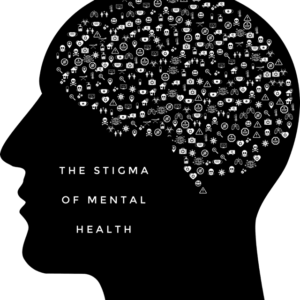
Mental health is an essential aspect of our overall well-being, yet it remains shrouded in misunderstandings and misconceptions. These misconceptions not only contribute to the stigma surrounding mental health but also hinder individuals from seeking the help and support they need. By debunking these myths, we can promote a more inclusive and compassionate society that supports everyone’s mental well-being.
One common misconception is that mental health issues are rare or uncommon. In reality, mental health conditions affect a significant portion of the population. According to the World Health Organization, approximately one in four people will experience a mental health problem at some point in their lives. Recognizing the prevalence of mental health challenges helps us understand that these issues can affect anyone, regardless of age, gender, or background.
Another prevailing misconception is that mental health problems are a sign of weakness or personal failure. This harmful belief perpetuates stigma and prevents individuals from seeking help due to fear of judgment or shame. However, mental health issues are not a reflection of personal character or strength. They are complex conditions influenced by various factors, including genetics, biology, life experiences, and environmental factors. Just as people seek medical care for physical ailments, it is crucial to treat mental health concerns with the same understanding and empathy.
Misconceptions about mental health can also lead to the notion that individuals with mental health issues are dangerous or violent. This stereotype is perpetuated by media portrayals that sensationalize cases involving individuals with mental illness. However, research consistently shows that the vast majority of people with mental health conditions are not violent and are more likely to be victims of violence rather than perpetrators. Associating mental illness with violence only serves to further marginalize and isolate those who need support and understanding.
Another myth that needs debunking is that mental health problems cannot be treated effectively. This belief undermines the importance of early intervention and appropriate treatment. In reality, many mental health conditions are manageable, and with the right support, individuals can recover and lead fulfilling lives. Therapeutic approaches, such as counseling, psychotherapy, and medication, can significantly alleviate symptoms and improve overall well-being. By seeking help and adhering to treatment plans, individuals can regain control over their lives and thrive.
Lastly, there is a misconception that mental health issues are just a phase or something one can “snap out of.” This oversimplification fails to acknowledge the complex nature of mental health conditions. Mental illnesses are not fleeting emotions or temporary struggles that can be easily overcome with willpower alone. They are genuine medical conditions that require appropriate care and support. Ignoring or dismissing someone’s mental health concerns can exacerbate their condition and hinder their recovery.
Breaking down the misconceptions surrounding mental health is crucial for fostering a more supportive and inclusive society. Education and awareness play a vital role in dispelling these myths, promoting empathy, and encouraging individuals to seek help when needed. By promoting open conversations, providing accurate information, and showing compassion, we can collectively challenge the stigma surrounding mental health and build a world where everyone feels safe and supported in seeking the help they deserve.
https://www.psychiatry.org/patients-families/stigma-and-discrimination
https://www.mayoclinic.org/diseases-conditions/mental-illness/in-depth/mental-health/art-20046477
https://www.healthdirect.gov.au/mental-illness-stigma
https://www.ncbi.nlm.nih.gov/pmc/articles/PMC1489832/
https://stlmentalhealth.com is a St. Louis mental health therapy practice in Creve Coeur, Missouri. The practice has a team of mental health therapists who provide therapy and counseling services to kids, teens, adults, couples, and families. Pearlman & Associates specializes in stress, anxiety, depression, relationships, and other mental health related issues and concerns. The practice can be reached by phone at: 314-942-1147, by email at: bryan@stlmentalhealth.com or on the web at: https://stlmentalhealth.com/contact-us/. The office is located at: 655 Craig Road, Suite 300, St. Louis, MO 63141.